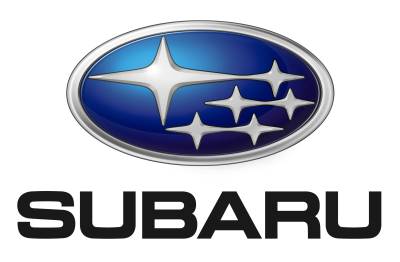Top Class Actions’s website and social media posts use affiliate links. If you make a purchase using such links, we may receive a commission, but it will not result in any additional charges to you. Please review our Affiliate Link Disclosure for more information.

According to the Subaru class action lawsuit, certain models of Subaru Forester, Legacy, Outback, and Crosstek vehicles allegedly contained defective piston rings that increased the amount of engine oil consumption and burning. This defect can reportedly lead to engine failure and possibly cause accidents.
The class action lawsuit allegations also claim that Subaru knew of this defect and actively concealed it from consumers. The complaint states, “[Subaru] did not reveal that the existence of the defect would diminish the intrinsic and resale value of the class vehicles and lead to the safety concerns described herein[.]”
The original Subaru oil burning defect class action lawsuit was filed in New Jersey federal court by California resident Keith Yaeger and Florida resident Michael Schuler. Both lead plaintiffs bought brand new Subaru vehicles from authorized Subaru dealers in their respective states. Yaeger bought a 2014 Subaru Forester 2.5L and Schuler purchased a 2013 Subaru Outback 2.5L.
In their Subaru class action lawsuit, Yaeger and Schuler allege they individually discovered the oil burning defect when they had to take their Subaru vehicles in for maintenance ahead of the suggested oil change schedule. The plaintiffs allege they were forced to do so to avoid engine failure due to the “unacceptable rate” of oil consumption.
Additionally, Yaeger and Schuler claim that even when they took in their vehicles to Subaru dealerships for work and maintenance, Subaru allegedly did nothing to correct the pistol ring and oil consumption defect.
According to the oil burning defect class action lawsuit:
“Subaru has also refused to take any action to correct this concealed design defect when it manifests in the Class Vehicles outside of the warranty period. Since the Oil Consumption Defect typically manifests within and/or shortly outside of the warranty period for the Class Vehicles – and given Defendants’ knowledge of this concealed, safety related design defect – any attempt by Subaru to limit the warranty with respect to the Oil Consumption Defect is unconscionable here.”
In response to these allegations, Subaru has changed their online vehicle information to state that some car models consume oil at a higher rate, but according to the class action lawsuit, “has not recalled the Class Vehicles to repair the Oil Consumption Defect[.]” The car maker has also reportedly neglected to offer to repair or replace the defective parts free of charge or reimbursed Subaru car owners for the financial burden of having to constantly repair or maintain the vehicle due to the alleged oil consumption defect.
According to dealer and consumer reports submitted to the National Highway Traffic Safety Administration, the Subaru oil consumption defect includes the following Subaru car year and models that are also named in the class action lawsuit: 2011-14 Subaru Forester 2.5L, 2013 Legacy 2.5L, 2013 Outback 2.5L, 2012-13 Impreza 2.0L and 2013 XV Crosstek 2.0L vehicles.
The Subaru oil burning defect class action lawsuit alleges Subaru violated California and New Jersey state consumer protection laws, breached warranty, and committed common law fraud. Yaeger, Schuler, and their legal counsel are seeking to certify a Class of Subaru consumers nationwide who ever owned or leased the defective vehicles, as well as subclasses of California, Florida, and New Jersey car consumers.
Keith Yaeger and Michael Schuler are represented by Joseph G. Sauder, Matthew D. Schelkopf and Benjamin F. Johns of Chimicles & Tikellis LLP.
The Subaru Oil Burning Defect Class Action Lawsuit is Yaeger, et al. v. Subaru of America Inc., et al., Case No. 1:14-cv-04490, in the U.S. District Court for the District of New Jersey.
UPDATE: On Jan. 4, 2016, the plaintiffs asked the court to grant preliminary approval to a proposed settlement of the Subaru oil burning defect class action lawsuit.
UPDATE 2: On Apr. 12, 2016, the Subaru oil burning settlement is now open! Click here to file a Claim Form or visit www.OilConsumption.SettlementClass.com for details.
ATTORNEY ADVERTISING
Top Class Actions is a Proud Member of the American Bar Association
LEGAL INFORMATION IS NOT LEGAL ADVICE
Top Class Actions Legal Statement
©2008 – 2024 Top Class Actions® LLC
Various Trademarks held by their respective owners
This website is not intended for viewing or usage by European Union citizens.















24 thoughts onSubaru Faces a Nationwide Oil Burning Defect Class Action Lawsuit
I have a 2009 subaru Forrester whose engine failed in 2014 at 66,000 miles. After it was replaced (at my cost) 9 months later the transmission failed.
I have a 2009 Outback XT. I had to replace the engine in 2013. I had 123,000 miles so it was not under warranty. my car always burned oil. The new engine does not burn oil. I thought my car was a lemon. Now I’m learning it’s a wide spread problem. I don’t understand why Suburu is not covering the defeat in the older models.